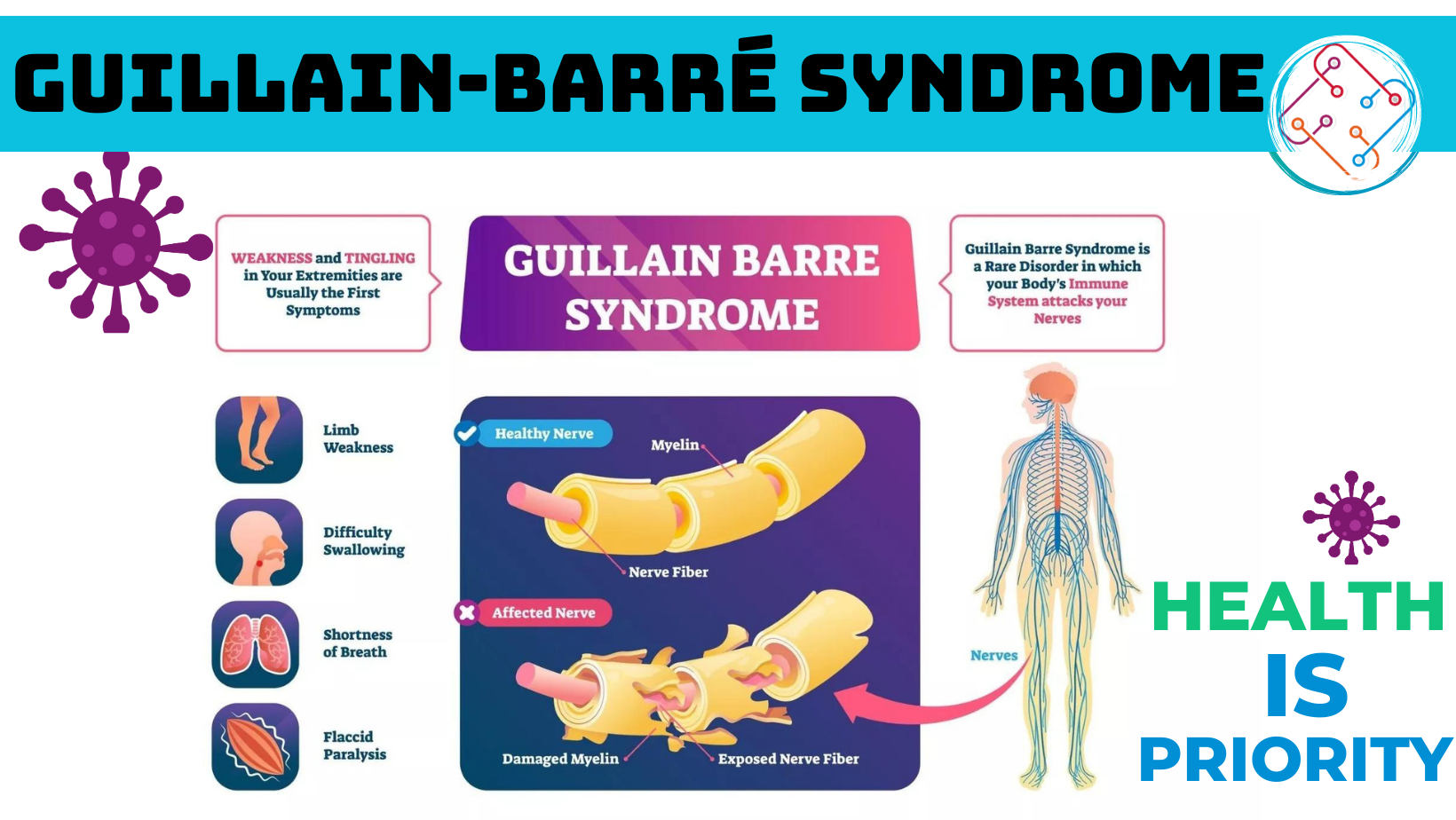Sometimes, our immune system can mistakenly attack the peripheral nervous system. This part of our body is made up of nerves that are not found inside our brain or spinal cord. When this happens, a rare neurological condition called Guillain-Barré syndrome (GBS) can develop. GBS affects the nerves and can cause problems with movement and feeling. GBS can range from mild weakness to severe paralysis, potentially affecting the ability to breathe independently. Fortunately, most individuals recover from GBS, although some may experience residual weakness.
Symptoms of Guillain-Barré Syndrome
Weakness
- Rapidly progressing weakness that worsens over hours or days.
- Affects both sides of the body equally.
- Initially noticed as difficulty climbing stairs or walking.
- Can impact various muscle groups, including those involved in breathing.
- Respiratory support may be required.
Sensation changes
- Nerve damage leads to abnormal sensory signals.
- Tingling, formications (sensation of insects crawling under the skin), and pain.
- Deep muscular pain in the back and legs.
- These sensations may occur before other major symptoms.
Other symptoms
- Difficulty with eye muscles and vision.
- Problems with swallowing, speaking, or chewing.
- Pricking or pins and needles sensations in the hands and feet.
- Severe pain, especially at night.
- Coordination problems and unsteadiness.
- Abnormal heartbeat or blood pressure.
- Digestive and bladder control issues.
Who is more likely to get Guillain-Barré Syndrome?
Incidence
GBS can affect anyone, with an estimated occurrence of about one person in 100,000 per year. Although it can strike at any age, it is more common in adults and older individuals. GBS is not contagious or inherited.
Causes
The exact cause of GBS remains unknown. It is believed that the immune system begins attacking the body, possibly triggered by an infection. Chemicals on infecting bacteria and viruses may resemble those on nerve cells, leading to an autoimmune response. In GBS, the immune system mistakenly attacks healthy nerves, resulting in damage.
Nerve damage
GBS typically damages the myelin sheath (insulation) surrounding the axons of peripheral nerves. In some cases, the axons themselves may also be damaged. As a result, nerve signal transmission is disrupted, leading to muscle weakness.
Triggers
GBS often occurs a few days or weeks after a viral respiratory or gastrointestinal infection. Rarely, surgery or certain vaccinations may trigger the syndrome. While there have been reports of GBS cases following the SARS-CoV-2 vaccine, the overall risk is very low. Additionally, some countries observed an increased incidence of GBS after Zika virus infections.
Conclusion:
Guillain-Barré syndrome is a rare neurological disorder characterized by the immune system attacking the peripheral nervous system. It can cause varying degrees of weakness, sensory changes, and other symptoms. While the exact cause is unknown, it is believed to involve an autoimmune response triggered by infections. Most individuals with GBS recover, but some may experience residual weakness. Prompt medical attention is crucial for proper diagnosis and management of the syndrome.
Note: It’s important to seek medical attention if experiencing these symptoms, as prompt diagnosis and management are crucial for Guillain-Barré syndrome.





